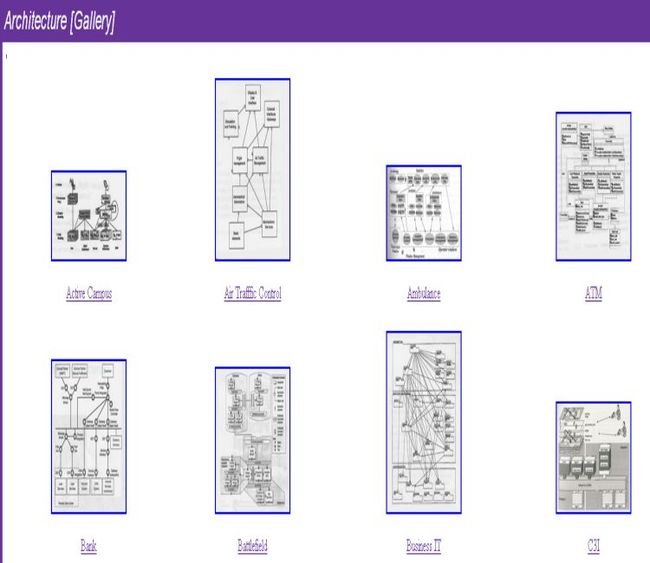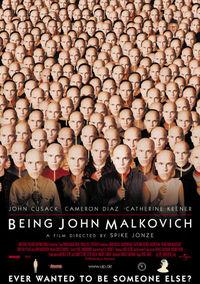- 【全栈】SprintBoot+vue3迷你商城-细节解析(2):分页
杰九
vue.jsspringbootjava
【全栈】SprintBoot+vue3迷你商城-细节解析(2):分页往期的文章都在这里啦,大家有兴趣可以看一下后端部分:【全栈】SprintBoot+vue3迷你商城(1)【全栈】SprintBoot+vue3迷你商城(2)【全栈】SprintBoot+vue3迷你商城-扩展:利用python爬虫爬取商品数据【全栈】SprintBoot+vue3迷你商城(3)【全栈】SprintBoot+vue3
- 有需要2025年参加蓝桥杯比赛的同学往下看!!!
岱宗夫up
教程蓝桥杯职场和发展
有需要2025年参加蓝桥杯比赛的同学往下下看!!!以下是关于近两年(2023年和2024年)蓝桥杯Python组考点的详细总结:一、2023年蓝桥杯Python考点分析在2023年的蓝桥杯Python竞赛中,考点主要集中在基础算法、数据结构、动态规划、数学、高精度计算以及二分查找等方面。(一)基础算法基础算法是竞赛的基石,包括枚举、排序(如冒泡排序、选择排序、插入排序等)、搜索(如BFS和DFS)
- 2024年网络安全最全【玄机】常见攻击事件分析--钓鱼邮件,网络相关+网络安全三方库的源码分析+数据结构与算法
2401_84302583
程序员网络安全学习面试
还有兄弟不知道网络安全面试可以提前刷题吗?费时一周整理的160+网络安全面试题,金九银十,做网络安全面试里的显眼包!王岚嵚工程师面试题(附答案),只能帮兄弟们到这儿了!如果你能答对70%,找一个安全工作,问题不大。对于有1-3年工作经验,想要跳槽的朋友来说,也是很好的温习资料!【完整版领取方式在文末!!】93道网络安全面试题内容实在太多,不一一截图了黑客学习资源推荐最后给大家分享一份全套的网络安全
- Ubuntu22 安装多个版本的python
莫忘初心丶
python数据库开发语言
前言使用pyenv是一个很好的选择,尤其是在需要管理多个Python版本时。它提供了一个简单的方法来安装、切换和管理多个版本的Python,而不必依赖系统的包管理器或update-alternatives。特别是当你需要在同一系统中频繁切换Python版本时,pyenv会显得更加方便。目录前言为什么使用`pyenv`安装`pyenv`1.安装依赖2.安装`pyenv`3.配置shell环境4.安装
- mysql8.4+mysql router读写分离
Alex_z0897
mysql数据库
以下为容器环境内搭建准备工作:拉取镜像:镜像版本mysql8.4container-registry.oracle.com/mysql/community-router8.4下载mysql_shellmysql-shell-9.0.1-linux-glibc2.17-x86-64bit.tar.gz下载地址:https://downloads.mysql.com/archives/shell/参考
- python的继承
zhangbeizhen18
L01-基础
记录:备忘录。1.继承classPerson(object):def__init__(self,p_name,p_addr,p_age):self.name=p_nameself.addr=p_addrself.age=p_ageclassGirl(Person):def__init__(self,g_name,g_addr,g_age,g_bra_cup):Person.__init__(sel
- 主要空间数据挖掘方法
CodeYoung7
总结归纳数据挖掘地理信息
文章出自:http://blog.csdn.net/shaoz/article/details/6847925张新长马林兵等,《地理信息系统数据库》[M],科学出版社,2005年2月第二章第二节空间数据空间数据挖掘是多学科和多种技术交叉综合的新领域,其挖掘方法以人工智能、专家系统、机器学习、数据库和统计等成熟技术为基础。下面介绍近年来出现的主要空间数据挖掘方法。1、空间分析方法利用GIS的各种空间
- 【MySQL】表空间丢失处理(Tablespace is missing for table 错误处理)
m0_74824823
面试学习路线阿里巴巴mysql数据库
问题背景最近,我在运行一个基于Python爬虫的项目时,爬虫需要频繁与MySQL数据库交互。不幸的是,在数据爬取过程中,Windows系统突然强制更新并重启。这次意外中断导致MySQL数据库的三个表格(2022年、2023年和2024年的数据表)出现了“Tablespaceismissing”的错误。起初,我尝试了常规的CHECKTABLE和REPAIRTABLE方法,但这些都没有解决问题。最终,
- 代码随想录算法营Day44 | 198. 打家劫舍,213. 打家劫舍 II,337. 打家劫舍 III
寂枫zero
算法数据结构pythonleetcode
198.打家劫舍这道题要求不能偷相邻的房子,那么它的动态转移公式就是dp[i]=max(dp[i-1],dp[i-2]+nums[i])即当前索引能抢的最大值就是前一个索引的值与i-2的索引的值加上当前金额的最大值。defrob(self,nums:List[int])->int:iflen(nums)int:n=len(nums)ifnint:defhelp(root):ifnotroot:re
- 【数据挖掘】ARFF格式与数据收集
布鲁惠比寿
数据挖掘数据挖掘人工智能
【数据挖掘】ARFF格式与数据收集三级目录1.ARFF格式与数据收集2.稀疏数据3.属性类型4.缺失值与不正确的值5.了解数据6.知识表达7.聚类机器学习算法训练数据挖掘分析数据共享与交换三级目录1.ARFF格式与数据收集ARFF(Attribute-RelationFileFormat)是一种用于存储数据集的文本文件格式,常用于机器学习和数据挖掘领域。它可以表示结构化数据,包括属性定义、关系信息
- Python 继承详解
江湖一条鱼
python
继承是面向对象编程(OOP)的一个重要特性,允许一个类(子类)从另一个类(父类)继承属性和方法。继承可以提高代码的重用性,增强程序的可扩展性和可维护性。目录一、继承的作用二、继承的语法1.单继承2.多继承三、子类扩展1.添加新功能2.重写父类方法3.调用父类方法四、继承的特殊情况1.子类初始化父类2.方法解析顺序(MRO)五、抽象类与接口1.抽象类2.接口3.ABC类4.使用方法1.定义抽象基类2
- 常用网络工具分析(ping,tcpdump等)
一户董
杂tcpdump网络
写在前面本文看下常用网络工具。1:ping1.1:用途用于检验网络的连通性。1.2:实战在Linux环境中执行:pingwww.sina.com.cn:[root@localhost~]#pingwww.sina.com.cnPINGspool.grid.sinaedge.com(111.62.129.51)56(84)bytesofdata.64bytesfrom111.62.129.51(11
- 【如何学习商城源码】
启山智软 商城 源码
微信小程序小程序java
学习商城源码是一个系统而深入的过程,需要掌握多种方法和技巧。以下是一些建议,帮助你有效地学习商城源码:一、搭建学习环境准备开发工具编程语言相关:根据商城源码使用的编程语言,安装相应的集成开发环境(IDE)。例如,若源码是Java语言编写的,可安装IntelliJIDEA或Eclipse;若是Python语言,可选择PyCharm等。这些IDE能帮助你高效地编辑、调试代码,提供语法高亮、自动补全等功
- 从零创建一个 Django 项目
m0_74824823
面试学习路线阿里巴巴djangopython后端
1.准备环境在开始之前,确保你的开发环境满足以下要求:安装了Python(推荐3.8或更高版本)。安装pip包管理工具。如果要使用MySQL或PostgreSQL,确保对应的数据库已安装。创建虚拟环境在项目目录中创建并激活虚拟环境,保证项目依赖隔离:#创建虚拟环境python-mvenvenv#激活虚拟环境#WindowsenvScriptsactivate#Linux/Macsourceenv/
- anaconda中的python在pycharm中用不了_Pycharm中使用Anaconda
白白前
Pycharm中使用Anaconda问题:安装完Pycharm和Anaconda后,想让Pycharm能调用Anaconda中包含的各种包。这样就不用重复安装各种包了。Anaconda下载安装Anaconda指的是一个开源的Python发行版本,其包含了conda、Python等180多个科学包及其依赖项。因为包含了大量的科学包,Anaconda的下载文件比较大(约515MB)。安装Anacond
- python - 永久存储
susie0815
pythonpython服务器
打开文件使用open()函数打开文件时,openfilemode(文件打开模式)是一个决定了以何种方式打开文件以及对文件可以进行哪些操作的重要参数。基本模式只读模式(‘r’)默认的打开模式,用于读取文件。如果文件不存在,会抛出FileNotFoundError异常。try:file=open('test.txt','r')content=file.read()print(content)file.
- 自动化测试的学习路线
Ws_
学习
自动化测试是提高软件开发效率和质量的关键手段。学习自动化测试通常涉及多个方面的技能,从基础的编程语言知识到测试工具的使用,再到实际的测试脚本编写和执行。以下是一个学习自动化测试的路线图,帮助你有条不紊地掌握相关技能:1.基础知识在开始自动化测试之前,首先要具备一定的编程和软件测试基础:编程语言:Python、Java、JavaScript或者Ruby(根据你选择的自动化测试工具决定)软件测试基础:
- Python自动化测试
Ws_
pythonpython
Python自动化测试是软件开发中的重要组成部分,可以帮助提高测试效率和准确性。以下是学习Python自动化测试的基本路线,以及相关资料的链接:学习路线1.基础知识Python基础:掌握Python语言的基本语法、数据类型、控制流、函数、面向对象编程等。你可以先确保对Python的基本语法有清晰的理解。参考资料:Python官方文档书籍推荐:《Python编程:从入门到实践》2.了解自动化测试的基
- Python实现Excel表格保存到不同文件夹
Leo_Aqu
excelpython
"""点击“上传”按钮,从本地上传待处理的Excel表格点击“处理”按钮,对Excel表格进行处理点击“保存A”按钮,保存处理后的Excel表格到A文件夹下点击“保存B”按钮,保存处理后的Excel表格到B文件夹下"""#作者:Leo#时间:2024/9/2621:52importtkinterastkfromtkinterimportfiledialog,messageboximportpand
- 通义灵码AI程序员
天天向上杰
AI编程AIGC人工智能
通义灵码是阿里云与通义实验室联合打造的智能编码辅助工具,基于通义大模型技术,为开发者提供多种编程辅助功能。它支持多种编程语言,包括Java、Python、Go、TypeScript、JavaScript、C/C++、PHP、C#、Ruby等200多种编码语言。通义灵码AI程序员:今年1月,通义灵码AI程序员全面上线,同时支持VSCode、JetBrainsIDEs,是国内首个真正落地的AI程序员。
- python使用技巧
超超是超超
python
1、耗时装饰器importtimedefdecorate(func):definner():begin=time.time()result=func()end=time.time()print(f'函数{func}耗时{end-begin}')returnresultreturninner2、查看代码运行耗时fromline_profilerimportLineProfilerdefoperati
- Anaconda与python和pycharm的安装及其关系
Daylight..
学习笔记pycharmpythonide
Anaconda与python和pycharm的安装及其关系一、Anaconda与python和pycharm的关系:1.Anaconda包含python,并且里面含有许多常用的库。(安装了Anaconda就不需要安装python了)2.pycharm是一种IDE(集成开发环境),在其中可以编写Python程序。(工具和语言的关系)。二、如何安装?Anaconda的安装Anaconda官网下载地址
- ImportError: cannot import name ‘Mapping‘ from ‘collections‘
AI算法网奇
python基础前端javascript数据库
ImportError:cannotimportname'Mapping'from'collections'解决方法:fromcollections.abcimportMapping#正确导入Mappingdefprocess_mapping(data):ifisinstance(data,Mapping):#使用Mapping进行类型检查#处理映射类型的代码pass测试命令:python-c"f
- python图形界面化编程GUI(二)常用的组件(Text、Radiobutton、Checkbutton、Canvas)和布局管理器(gird、pack、place)
hwwaizs
python-GUI图形化编程python开发语言
Text文本框Text(多行文本框)的主要用于显示多行文本,还可以显示网页链接,图片,HTML页面,甚至CSS样式表,添加组件等。主要用来显示信息,也常被当做简单的文本处理器、⽂本编辑器或者网页浏览器来使用。IDLE就是Text组件构成的。insert插入的时候可以用INSERT代表当前光标的位置,END代表在结尾的位置,也可以用插入小数的形式,2.3代表第二行第三列后插入。fromtkinter
- 【深度解析】最短路径算法:Dijkstra与Floyd-Warshall
吴师兄大模型
算法数据结构python最短路径算法Dijkstra算法Floyd-Warshall开发语言
系列文章目录01-从零开始掌握Python数据结构:提升代码效率的必备技能!02-算法复杂度全解析:时间与空间复杂度优化秘籍03-线性数据结构解密:数组的定义、操作与实际应用04-深入浅出链表:Python实现与应用全面解析05-栈数据结构详解:Python实现与经典应用场景06-深入理解队列数据结构:从定义到Python实现与应用场景07-双端队列(Deque)详解:Python实现与滑动窗口应
- CSE 231 Computer Python program
后端
CSE231Spring2025ComputerProject#4LearningobjectivesThisassignmentfocusesonthedesign,implementationandtestingofaPythonprogramthatusescharacterstringsforlookingattheDNAsequencesforkeyproteinsandseeingho
- 【核心算法篇十三】《DeepSeek自监督学习:图像补全预训练方案》
再见孙悟空_
「2025DeepSeek技术全景实战」算法学习计算机视觉deepSeek深度学习transformer人工智能
引言:为什么自监督学习成为AI新宠?在传统监督学习需要海量标注数据的困境下,自监督学习(Self-SupervisedLearning)凭借无需人工标注的特性异军突起。想象一下,如果AI能像人类一样通过观察世界自我学习——这正是DeepSeek图像补全方案的技术哲学。根据,自监督学习通过设计巧妙的"预训练任务"(PretextTask),让模型在无标签数据中自动学习图像语义特征。而图像补全正是这类
- 全网最全!DeepSeek 新手入门教程合集
人工智能deepseek
如果你是初次接触DeepSeek的普通用户或开发者,面对海量教程却无从下手?别担心!本文为你整理全网最易懂、最实用的DeepSeek学习资源,涵盖快速上手、编程实战、系统手册等,附直达链接,收藏这一篇就够了!一、快速入门指南《DeepSeek入门教程》-博客园亮点:手把手教你注册账号、获取APIKey,并提供Python调用多轮对话的代码示例,适合初级开发者。直达链接:点击查看核心内容:API调用
- Linux系统替换字符串常用命令
在Linux系统中,替换字符串的操作是一项非常常见且实用的任务,尤其在处理大量文本文件时。sed和grep是两个非常强大的工具,广泛用于这种类型的文本处理操作。接下来我们将深入探讨如何使用这两个工具来实现字符串的替换操作,并详细分析每个步骤。1.使用sed替换字符串sed(StreamEditor)是一个流编辑器,广泛应用于文本处理。它可以进行查找、替换、删除和插入操作。sed的基本语法用于字符串
- 【Python】Python入门——判断语句
zhoushanguhe
Pythonpython编程开发语言
Python入门——判断语句。内容包括if语句、条件表达式、三元运算、match语句等。目录一、if语句1.基本if-else语句2.常用比较运算符3.if-else连写4.pass语句5.变量的作用域二、条件表达式三、三元运算四、match语句五、其他一、if语句1.基本if-else语句当条件成立时,执行某些语句;否则执行另一些语句。注意:if和else后需要加上冒号:if语句的代码块需要缩进
- java工厂模式
3213213333332132
java抽象工厂
工厂模式有
1、工厂方法
2、抽象工厂方法。
下面我的实现是抽象工厂方法,
给所有具体的产品类定一个通用的接口。
package 工厂模式;
/**
* 航天飞行接口
*
* @Description
* @author FuJianyong
* 2015-7-14下午02:42:05
*/
public interface SpaceF
- nginx频率限制+python测试
ronin47
nginx 频率 python
部分内容参考:http://www.abc3210.com/2013/web_04/82.shtml
首先说一下遇到这个问题是因为网站被攻击,阿里云报警,想到要限制一下访问频率,而不是限制ip(限制ip的方案稍后给出)。nginx连接资源被吃空返回状态码是502,添加本方案限制后返回599,与正常状态码区别开。步骤如下:
- java线程和线程池的使用
dyy_gusi
ThreadPoolthreadRunnabletimer
java线程和线程池
一、创建多线程的方式
java多线程很常见,如何使用多线程,如何创建线程,java中有两种方式,第一种是让自己的类实现Runnable接口,第二种是让自己的类继承Thread类。其实Thread类自己也是实现了Runnable接口。具体使用实例如下:
1、通过实现Runnable接口方式 1 2
- Linux
171815164
linux
ubuntu kernel
http://kernel.ubuntu.com/~kernel-ppa/mainline/v4.1.2-unstable/
安卓sdk代理
mirrors.neusoft.edu.cn 80
输入法和jdk
sudo apt-get install fcitx
su
- Tomcat JDBC Connection Pool
g21121
Connection
Tomcat7 抛弃了以往的DBCP 采用了新的Tomcat Jdbc Pool 作为数据库连接组件,事实上DBCP已经被Hibernate 所抛弃,因为他存在很多问题,诸如:更新缓慢,bug较多,编译问题,代码复杂等等。
Tomcat Jdbc P
- 敲代码的一点想法
永夜-极光
java随笔感想
入门学习java编程已经半年了,一路敲代码下来,现在也才1w+行代码量,也就菜鸟水准吧,但是在整个学习过程中,我一直在想,为什么很多培训老师,网上的文章都是要我们背一些代码?比如学习Arraylist的时候,教师就让我们先参考源代码写一遍,然
- jvm指令集
程序员是怎么炼成的
jvm 指令集
转自:http://blog.csdn.net/hudashi/article/details/7062675#comments
将值推送至栈顶时 const ldc push load指令
const系列
该系列命令主要负责把简单的数值类型送到栈顶。(从常量池或者局部变量push到栈顶时均使用)
0x02 &nbs
- Oracle字符集的查看查询和Oracle字符集的设置修改
aijuans
oracle
本文主要讨论以下几个部分:如何查看查询oracle字符集、 修改设置字符集以及常见的oracle utf8字符集和oracle exp 字符集问题。
一、什么是Oracle字符集
Oracle字符集是一个字节数据的解释的符号集合,有大小之分,有相互的包容关系。ORACLE 支持国家语言的体系结构允许你使用本地化语言来存储,处理,检索数据。它使数据库工具,错误消息,排序次序,日期,时间,货
- png在Ie6下透明度处理方法
antonyup_2006
css浏览器FirebugIE
由于之前到深圳现场支撑上线,当时为了解决个控件下载,我机器上的IE8老报个错,不得以把ie8卸载掉,换个Ie6,问题解决了,今天出差回来,用ie6登入另一个正在开发的系统,遇到了Png图片的问题,当然升级到ie8(ie8自带的开发人员工具调试前端页面JS之类的还是比较方便的,和FireBug一样,呵呵),这个问题就解决了,但稍微做了下这个问题的处理。
我们知道PNG是图像文件存储格式,查询资
- 表查询常用命令高级查询方法(二)
百合不是茶
oracle分页查询分组查询联合查询
----------------------------------------------------分组查询 group by having --平均工资和最高工资 select avg(sal)平均工资,max(sal) from emp ; --每个部门的平均工资和最高工资
- uploadify3.1版本参数使用详解
bijian1013
JavaScriptuploadify3.1
使用:
绑定的界面元素<input id='gallery'type='file'/>$("#gallery").uploadify({设置参数,参数如下});
设置的属性:
id: jQuery(this).attr('id'),//绑定的input的ID
langFile: 'http://ww
- 精通Oracle10编程SQL(17)使用ORACLE系统包
bijian1013
oracle数据库plsql
/*
*使用ORACLE系统包
*/
--1.DBMS_OUTPUT
--ENABLE:用于激活过程PUT,PUT_LINE,NEW_LINE,GET_LINE和GET_LINES的调用
--语法:DBMS_OUTPUT.enable(buffer_size in integer default 20000);
--DISABLE:用于禁止对过程PUT,PUT_LINE,NEW
- 【JVM一】JVM垃圾回收日志
bit1129
垃圾回收
将JVM垃圾回收的日志记录下来,对于分析垃圾回收的运行状态,进而调整内存分配(年轻代,老年代,永久代的内存分配)等是很有意义的。JVM与垃圾回收日志相关的参数包括:
-XX:+PrintGC
-XX:+PrintGCDetails
-XX:+PrintGCTimeStamps
-XX:+PrintGCDateStamps
-Xloggc
-XX:+PrintGC
通
- Toast使用
白糖_
toast
Android中的Toast是一种简易的消息提示框,toast提示框不能被用户点击,toast会根据用户设置的显示时间后自动消失。
创建Toast
两个方法创建Toast
makeText(Context context, int resId, int duration)
参数:context是toast显示在
- angular.identity
boyitech
AngularJSAngularJS API
angular.identiy 描述: 返回它第一参数的函数. 此函数多用于函数是编程. 使用方法: angular.identity(value); 参数详解: Param Type Details value
*
to be returned. 返回值: 传入的value 实例代码:
<!DOCTYPE HTML>
- java-两整数相除,求循环节
bylijinnan
java
import java.util.ArrayList;
import java.util.List;
public class CircleDigitsInDivision {
/**
* 题目:求循环节,若整除则返回NULL,否则返回char*指向循环节。先写思路。函数原型:char*get_circle_digits(unsigned k,unsigned j)
- Java 日期 周 年
Chen.H
javaC++cC#
/**
* java日期操作(月末、周末等的日期操作)
*
* @author
*
*/
public class DateUtil {
/** */
/**
* 取得某天相加(减)後的那一天
*
* @param date
* @param num
*
- [高考与专业]欢迎广大高中毕业生加入自动控制与计算机应用专业
comsci
计算机
不知道现在的高校还设置这个宽口径专业没有,自动控制与计算机应用专业,我就是这个专业毕业的,这个专业的课程非常多,既要学习自动控制方面的课程,也要学习计算机专业的课程,对数学也要求比较高.....如果有这个专业,欢迎大家报考...毕业出来之后,就业的途径非常广.....
以后
- 分层查询(Hierarchical Queries)
daizj
oracle递归查询层次查询
Hierarchical Queries
If a table contains hierarchical data, then you can select rows in a hierarchical order using the hierarchical query clause:
hierarchical_query_clause::=
start with condi
- 数据迁移
daysinsun
数据迁移
最近公司在重构一个医疗系统,原来的系统是两个.Net系统,现需要重构到java中。数据库分别为SQL Server和Mysql,现需要将数据库统一为Hana数据库,发现了几个问题,但最后通过努力都解决了。
1、原本通过Hana的数据迁移工具把数据是可以迁移过去的,在MySQl里面的字段为TEXT类型的到Hana里面就存储不了了,最后不得不更改为clob。
2、在数据插入的时候有些字段特别长
- C语言学习二进制的表示示例
dcj3sjt126com
cbasic
进制的表示示例
# include <stdio.h>
int main(void)
{
int i = 0x32C;
printf("i = %d\n", i);
/*
printf的用法
%d表示以十进制输出
%x或%X表示以十六进制的输出
%o表示以八进制输出
*/
return 0;
}
- NsTimer 和 UITableViewCell 之间的控制
dcj3sjt126com
ios
情况是这样的:
一个UITableView, 每个Cell的内容是我自定义的 viewA viewA上面有很多的动画, 我需要添加NSTimer来做动画, 由于TableView的复用机制, 我添加的动画会不断开启, 没有停止, 动画会执行越来越多.
解决办法:
在配置cell的时候开始动画, 然后在cell结束显示的时候停止动画
查找cell结束显示的代理
- MySql中case when then 的使用
fanxiaolong
casewhenthenend
select "主键", "项目编号", "项目名称","项目创建时间", "项目状态","部门名称","创建人"
union
(select
pp.id as "主键",
pp.project_number as &
- Ehcache(01)——简介、基本操作
234390216
cacheehcache简介CacheManagercrud
Ehcache简介
目录
1 CacheManager
1.1 构造方法构建
1.2 静态方法构建
2 Cache
2.1&
- 最容易懂的javascript闭包学习入门
jackyrong
JavaScript
http://www.ruanyifeng.com/blog/2009/08/learning_javascript_closures.html
闭包(closure)是Javascript语言的一个难点,也是它的特色,很多高级应用都要依靠闭包实现。
下面就是我的学习笔记,对于Javascript初学者应该是很有用的。
一、变量的作用域
要理解闭包,首先必须理解Javascript特殊
- 提升网站转化率的四步优化方案
php教程分享
数据结构PHP数据挖掘Google活动
网站开发完成后,我们在进行网站优化最关键的问题就是如何提高整体的转化率,这也是营销策略里最最重要的方面之一,并且也是网站综合运营实例的结果。文中分享了四大优化策略:调查、研究、优化、评估,这四大策略可以很好地帮助用户设计出高效的优化方案。
PHP开发的网站优化一个网站最关键和棘手的是,如何提高整体的转化率,这是任何营销策略里最重要的方面之一,而提升网站转化率是网站综合运营实力的结果。今天,我就分
- web开发里什么是HTML5的WebSocket?
naruto1990
Webhtml5浏览器socket
当前火起来的HTML5语言里面,很多学者们都还没有完全了解这语言的效果情况,我最喜欢的Web开发技术就是正迅速变得流行的 WebSocket API。WebSocket 提供了一个受欢迎的技术,以替代我们过去几年一直在用的Ajax技术。这个新的API提供了一个方法,从客户端使用简单的语法有效地推动消息到服务器。让我们看一看6个HTML5教程介绍里 的 WebSocket API:它可用于客户端、服
- Socket初步编程——简单实现群聊
Everyday都不同
socket网络编程初步认识
初次接触到socket网络编程,也参考了网络上众前辈的文章。尝试自己也写了一下,记录下过程吧:
服务端:(接收客户端消息并把它们打印出来)
public class SocketServer {
private List<Socket> socketList = new ArrayList<Socket>();
public s
- 面试:Hashtable与HashMap的区别(结合线程)
toknowme
昨天去了某钱公司面试,面试过程中被问道
Hashtable与HashMap的区别?当时就是回答了一点,Hashtable是线程安全的,HashMap是线程不安全的,说白了,就是Hashtable是的同步的,HashMap不是同步的,需要额外的处理一下。
今天就动手写了一个例子,直接看代码吧
package com.learn.lesson001;
import java
- MVC设计模式的总结
xp9802
设计模式mvc框架IOC
随着Web应用的商业逻辑包含逐渐复杂的公式分析计算、决策支持等,使客户机越
来越不堪重负,因此将系统的商业分离出来。单独形成一部分,这样三层结构产生了。
其中‘层’是逻辑上的划分。
三层体系结构是将整个系统划分为如图2.1所示的结构[3]
(1)表现层(Presentation layer):包含表示代码、用户交互GUI、数据验证。
该层用于向客户端用户提供GUI交互,它允许用户

